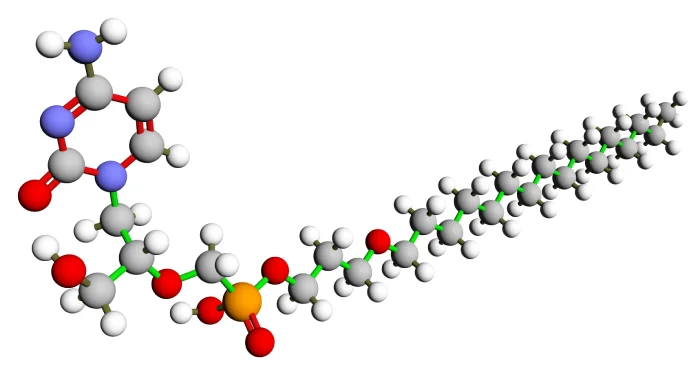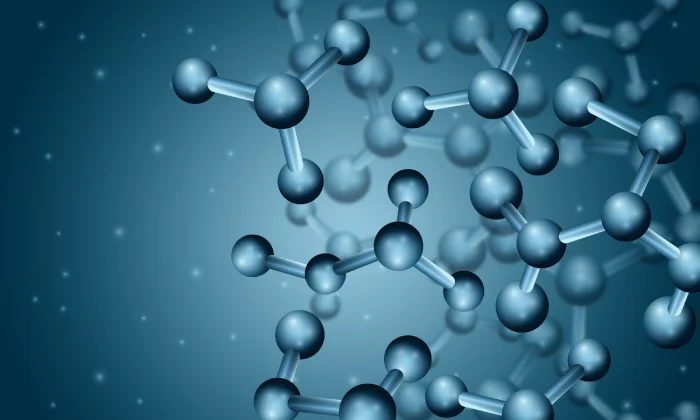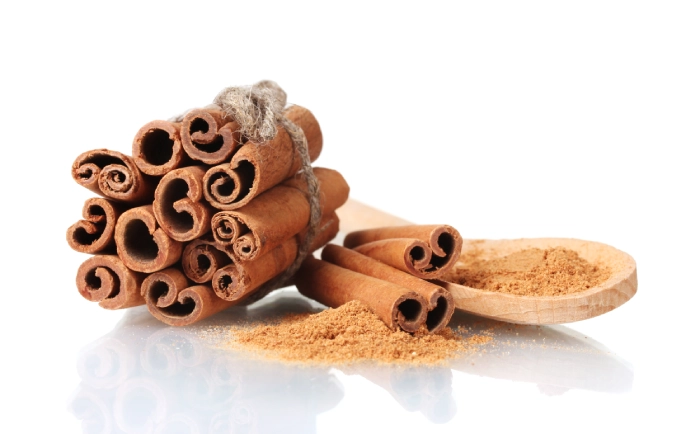Understanding the wide range of histidine benefits is crucial for anyone interested in optimizing their health and nutrition. As we delve into this comprehensive guide, you’ll discover why this remarkable amino acid has garnered significant attention in both scientific research and health communities.
What is Histidine: Essential Amino Acid Overview
Before exploring the numerous histidine benefits in detail, it’s important to understand what makes this amino acid unique. Histidine is one of the 20 essential amino acids vital for human health, and its distinctive properties make it an fascinating subject in nutritional science.
Chemical Structure and Properties
The molecular structure of histidine includes a characteristic imidazole ring, which is crucial for its biological functions. At physiological pH (around 7), histidine exists in both protonated and deprotonated forms, making it exceptionally valuable for biological systems. The histidine benefits related to its chemical properties are particularly evident in its role as a pH buffer in various cellular processes.
Natural Sources and Availability
You can find histidine in various food sources, including:
- Animal proteins (meat, poultry, fish)
- Dairy products
- Eggs
- Plant-based sources (whole grains, rice, wheat)
- Legumes and beans
The Science Behind Histidine
Molecular Structure and DNA/mRNA Relationships
Understanding histidine benefits requires knowledge of its role in genetic processes. Is histidine in DNA? While it’s not directly part of DNA structure, it’s essential for DNA synthesis and repair. The mRNA sequence for histidine is specific and precisely controlled, working alongside other amino acids like methionine, asparagine, and valine in protein synthesis.
pH Balance and Chemical Behavior
One of the most significant histidine benefits lies in its pH-regulating capabilities. The pKa of histidine (approximately 6.0) makes it an excellent buffer at physiological pH. This property is demonstrated through histidine titration curves, which show its unique ability to accept and donate protons. At pH 7, histidine’s charge state allows it to participate in numerous biological processes.
Cellular Functions and Metabolism
In our body, some cells can use histidine to produce various important compounds, including:
- Histamine for immune responses
- Hemoglobin for oxygen transport
- Carnosine for muscle function
- Various enzymes and proteins
Understanding Histidine’s Role in the Body
Protein Synthesis and DNA Formation
The presence of histidine in proteins often indicates functional significance, particularly in enzyme active sites. Charged histidine residues can participate in catalysis, while protonated histidine forms play crucial roles in protein structure.
Enzymatic Activities
As a key component of many enzymes, histidine participates in:
- Metal ion binding and coordination
- Acid-base catalysis
- Signal transduction
- Protein folding and stability
Cellular Production and Usage
Your body’s cells utilize histidine in various ways. For instance, histidine granules in lymph nodes play a role in immune function. Additionally, histidine can be modified post-translationally – for example, ubiquitin can be added to histidine residues in certain proteins.
Key Histidine Benefits for Health
The extensive range of histidine benefits continues to impress researchers and health professionals alike. As we explore these benefits in detail, you’ll understand why this amino acid is gaining recognition in the health and wellness community.
Immune System Support
One of the most remarkable histidine benefits involves its crucial role in immune function. The presence of histidine granules in lymph nodes suggests its importance in immune response. Research shows that histidine supplements may help:
- Enhance natural killer cell activity
- Support antibody production
- Regulate inflammation responses
- Strengthen overall immune defense mechanisms
Brain Health and Cognitive Function
The cognitive-related histidine benefits are particularly noteworthy. Studies have demonstrated that adequate histidine levels contribute to:
- Enhanced memory formation
- Improved focus and concentration
- Better stress management
- Supported neurotransmitter production These histidine benefits are especially relevant for aging populations concerned about maintaining cognitive health.
Physical Performance and Recovery
Athletes and fitness enthusiasts often seek out histidine benefits to enhance their performance. The amino acid’s role in:
- Muscle protein synthesis
- Energy production
- Fatigue reduction
- Recovery optimization makes it a valuable component of any serious training regimen.

Histidine in Medical Research
Clinical Studies and Findings
Recent research continues to uncover new histidine benefits across various health conditions. Studies examining histidine’s role in chronic diseases have shown promising results, particularly in:
- Metabolic disorders
- Cardiovascular health
- Inflammatory conditions
- Neurological functions
Therapeutic Applications
The therapeutic histidine benefits have led to increased interest in its medical applications. Healthcare providers are exploring its potential in:
- Managing chronic inflammation
- Supporting kidney function
- Addressing metabolic syndrome
- Improving sleep quality
Current Research Developments
Ongoing studies are revealing additional histidine benefits in various areas:
- Cancer research
- Autoimmune conditions
- Metabolic health
- Aging-related conditions
The Chemistry of Histidine in Human Biology
pH Regulation and Buffer Systems
Understanding the chemical properties of histidine explains many of its benefits. At pH 7, histidine’s unique properties make it an excellent buffer in biological systems. The histidine titration curve demonstrates its exceptional buffering capacity, while protonated histidine plays crucial roles in maintaining cellular pH balance.
Charge States at Different pH Levels
The histidine charge characteristics at various pH levels contribute to its versatility in biological systems. Is histidine aromatic? Yes, and this property, combined with its variable charge states, makes it particularly valuable in protein function. The pKa of histidine also explains its effectiveness in biological processes.
Biochemical Interactions
The ability of histidine to interact with various cellular components expands its beneficial effects. Some notable interactions include:
- Metal ion coordination
- Protein-protein interactions
- Enzyme activation
- Signal molecule production
Histidine Supplementation Guide
Understanding how to properly utilize histidine benefits through supplementation is crucial for achieving optimal results. When considering supplementation, it’s essential to recognize that individual needs may vary based on factors such as age, health status, and activity level.
Forms and Dosage Recommendations
The most common form available is L-histidine supplement, which is considered the most bioavailable form. The effectiveness of histidine benefits can be influenced by the quality and purity of the supplement you choose. While specific dosage requirements vary, typical recommendations range from 500mg to 4000mg daily, depending on your individual needs and health goals. However, it’s crucial to consult with a healthcare provider before starting any supplementation regimen, as they can help determine the optimal dosage based on your specific situation.
Timing and Absorption
To maximize histidine benefits, timing your supplementation appropriately is crucial. Taking histidine supplements on an empty stomach, particularly between meals, may enhance absorption. However, some individuals might experience better results when taking it with meals. The absorption of histidine can be affected by various factors, including other amino acids and nutrients in your diet.
Potential Interactions
While exploring histidine benefits, it’s important to understand potential interactions with other supplements and medications. Histidine supplements may interact with certain medications, particularly those affecting histamine levels in the body. Additionally, the timing of other amino acid supplements should be considered, as they might compete for absorption.
Target Demographics for Histidine Supplements
Athletes and Fitness Enthusiasts
For those engaged in regular physical activity, histidine benefits can be particularly valuable. Athletes often report improved recovery times and enhanced performance when incorporating appropriate histidine supplementation into their regimen. The amino acid’s role in muscle protein synthesis and energy production makes it especially relevant for this demographic.
Age-Related Considerations
As we age, the importance of understanding and utilizing histidine benefits becomes increasingly significant. Older adults may require different supplementation strategies to achieve optimal results. The cognitive and metabolic benefits of histidine become particularly relevant with age, as the body’s natural production and absorption capabilities may decline.
Special Medical Conditions
Certain medical conditions may influence how individuals experience histidine benefits. Those with specific health concerns should pay particular attention to proper supplementation protocols. The role of histidine in immune function and inflammation management makes it especially relevant for individuals with certain chronic conditions.
Safety Profile and Considerations
Beyond understanding histidine benefits, it’s crucial to be aware of safety considerations. While histidine is generally considered safe when taken as recommended, monitoring for any adverse reactions is important. Long-term supplementation should be supervised by a healthcare provider, who can monitor your response and adjust dosages as needed.
Known Side Effects
Although rare, some individuals may experience side effects when supplementing with histidine. These effects are typically mild and may include digestive discomfort or headaches. Understanding how your body responds to histidine benefits and supplementation is crucial for a successful experience.
Contraindications
Certain health conditions or medications may contraindicate histidine supplementation. Pregnant or nursing women should consult healthcare providers before starting supplementation. Similarly, individuals with conditions affecting histamine levels should exercise caution and seek professional guidance.
Quality and Purity Standards
The quality of your supplement significantly impacts the histidine benefits you may experience. Look for products manufactured in facilities that follow Good Manufacturing Practices (GMP). Third-party testing and quality certifications can provide additional assurance of product purity and potency.

How to Choose and Use Histidine Supplements
Understanding how to maximize histidine benefits through proper supplement selection and usage is crucial for achieving your health goals. When evaluating different supplement options, several key factors should influence your decision.
Product Selection Guidelines
When choosing a histidine supplement, look for products from reputable manufacturers that provide clear information about their sourcing and manufacturing processes. The purity and potency of the supplement can significantly impact the histidine benefits you experience. Consider factors such as the form of histidine used, additional ingredients, and third-party testing certifications.
Usage Instructions
To optimize histidine benefits, following proper usage guidelines is essential. Start with a lower dose and gradually increase it while monitoring your body’s response. Many people find that consistent, daily supplementation provides the best results, though individual needs may vary.
Storage Requirements
Proper storage is crucial for maintaining the potency of your supplements and ensuring you receive the full range of histidine benefits. Store your supplements in a cool, dry place away from direct sunlight. Check expiration dates regularly and ensure the container is properly sealed after each use.
Histidine vs Other Amino Acids
Comparative Benefits
While all amino acids play important roles in health, histidine’s unique properties set it apart. The specific histidine benefits related to pH regulation, immune function, and cognitive support make it particularly valuable in certain situations. Understanding these distinctions can help you make informed decisions about your supplementation strategy.
Synergistic Effects
Some amino acids work particularly well together, potentially enhancing their individual benefits. Consider how histidine interacts with other nutrients in your supplementation regimen to optimize results.
Unique Properties
The distinctive chemical properties of histidine, particularly its behavior at different pH levels and its role in various biological processes, contribute to its special place in amino acid supplementation.
Frequently Asked Questions (FAQs)
Q: What are the primary histidine benefits for overall health? A: The key benefits include support for immune function, cognitive health, pH regulation, and muscle recovery. Its role in protein synthesis and various metabolic processes makes it essential for overall wellbeing.
Q: Can histidine supplementation help with exercise recovery? A: Research suggests that appropriate histidine supplementation may support muscle recovery and reduce exercise-induced fatigue, though individual results may vary.
Q: How long does it take to notice the effects of histidine supplementation? A: The timeline for experiencing benefits can vary significantly among individuals, typically ranging from a few weeks to several months of consistent supplementation.
Q: Is it safe to take histidine supplements daily? A: While histidine is generally considered safe for daily use, it’s important to follow recommended dosages and consult with a healthcare provider before starting any supplementation regimen.
Q: What is the best time to take histidine supplements? A: Many people find taking histidine supplements on an empty stomach or between meals provides optimal absorption, though individual responses may vary.
Conclusion
The diverse range of histidine benefits makes it an important consideration for many health-conscious individuals. From its fundamental role in protein synthesis to its impact on immune function and cognitive health, histidine continues to demonstrate its value in human health and nutrition. When considering supplementation, remember to:
- Consult with healthcare providers for personalized advice
- Choose high-quality supplements from reputable manufacturers
- Follow recommended dosage guidelines
- Monitor your body’s response
- Maintain consistent supplementation for optimal results
Understanding both the benefits and limitations of histidine supplementation empowers you to make informed decisions about your health. Remember that while supplements can be valuable tools for supporting health, they work best as part of a comprehensive approach to wellness that includes proper nutrition, regular exercise, and healthy lifestyle habits.



